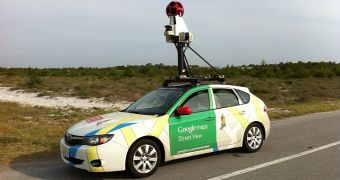Google is taking one of its major cases straight to the Supreme Court, where it hopes to get the judges to reverse a decision concluding that the media giant could be held liable for gathering data passing through unencrypted Wi-Fi routers via its Street View cars.
The case dates a few years back and the scandal broke through after the German authorities began asking questions. The company then admitted to unknowingly collecting unprotected Wi-Fi data through a device that was placed on the Google Street View cars. This went on between 2008 and 2010.
The cars have since stopped collecting such data and the information already in Google’s storage was deleted without the company even looking at it.
The most recent decision in the case was taken by an appeals court last September, when the court said Google might have violated the Wiretap Act. The company has defended itself against the claims, saying that capturing unencrypted Wi-Fi is not wiretapping, since such transmissions are radio communications similar to police and fire bands, or the AM/FM radio.
Previously, the Justice Department and the FCC have both cleared Google of direct wrongdoing.
The Wiretap Act outlaws the interception of electronic communications, although it features an exception for electronic communications that are easily accessible to the general public. Google argues that Wi-Fi connections unprotected by password fall into this category.
The case that Google wants the Supreme Court to judge is a tricky one and could have heavy implications. If the court rules in its favor, criminals who eavesdrop on such connections to pick out personal details on individuals, such as passwords and banking data, may get off the hook. While Google may not have used the collected data for any wrongdoings, there are people who would not shy away from it.
On the other hand, Google believes that the decision taken by the Appeals Court is bad for computer security, because IT professionals routinely use the same technology to collect data to secure company networks.
If the ruling stands, security professionals would be left without a way to properly make their networks safe, the company argues.
A reply is expected by the end of the month on whether the court would review the case or not. It could be a lot of months until a decision is reached, even if the case is accepted by the judges of the Supreme Court.

 14 DAY TRIAL //
14 DAY TRIAL //